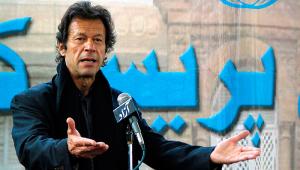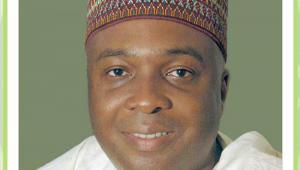Last month, David Cameron’s loose tongue helped his Anti-Corruption Summit hit the headlines for all the wrong reasons. The Prime Minister was overheard telling the Queen: “We’ve got some fantastically corrupt countries [attending]” just the night before he welcomed those very countries, specifically Nigeria and Afghanistan, to London.
But it was the Nigerian president’s surprise response that told the real story. When asked if he wanted Cameron to say sorry, Muhammadu Buhari quipped “What can I do with an apology? I want my assets returned”. The significance of this response, which side-stepped a potentially uncomfortable diplomatic incident, is that it rightly shows us that corruption is a global problem – and the world’s richest countries are facilitating the illicit financial deals that ends up damaging the economies of some of the poorest countries. It’s a popular presumption that corruption exists ‘over there’ but it is the financial centres of the richest countries where the problems lie, and where real change must happen.
This is exactly the case in the UK, or more specifically the British Overseas Territories and Crown Dependencies. When 213 cases of grand corruption (between 1980 and 2010) were reviewed by the World Bank, they found that 70% relied on anonymous companies and trusts, most commonly set up within the UK and its overseas territories. This is not limited to the UK; the US plays a significant role in facilitating corruption, as do other financial institutions and businesses. These actors enable vast sums of money to be siphoned out of developing countries, with an estimated $1 trillion disappearing every year.
The Anti-Corruption Summit was a significant moment in this ongoing effort, but it is not the end. The summit outcomes were mixed, with France committing to a public register of the true owners of companies and trusts; unfortunately, the UK didn’t reach this key policy change. Many civil society organisations were lobbying the UK government for public registers and this will continue, along with similar efforts internationally.
Another policy area that has been identified as pressing following its absence from the summit is Country By County Reporting (CBCR) of tax payments. Campaigning for public CBCR is currently led by Europe, but will have an impact across the world if successful. In order to have a significant impact towards global transparency, public CBCR must be implemented with specific requirements that will benefit the world’s poorest. CBCR – as civil society calls for it – would require businesses to publish how much tax they pay to governments in every country they operate in. It would also include non-financial information such as staff members for each country, so numbers can be cross-checked.
Full and transparent CBCR must include developing countries in the policy, as companies often shirk their tax responsibilities in these countries because they don’t have robust tax authorities to trace payments. Civil society has further identified that the policy must have a low threshold for the size of businesses included – those with a turnover of $40m or more – and include all country arms of the business, not just those in the EU.
While these seems like a long list of demands, it is the only way CBCR will truly have an impact and provide governments with the tax payments they are owed. This is especially pertinent in developing countries, as money that is recovered through tax payments could be invested in desperately needed public services such as hospitals and schools. CBCR must be made public; this is a key action in the efforts to tackle corruption and must have total transparency and accountability at its core.
If richer countries want to truly be seen as bastions of transparency and really help the world’s poorest, this is how to do it; with the help of public finance staff. While the policy change is mainly directed at the EU at present, this is an international issue that could have ramifications on businesses that are based all over the world.
Those working in the public finance sector must always be seeking to improve due diligence benchmarks and push for the utmost standards of transparency, above and beyond going by ‘what the book says’. If staff are pushing for governments to be more open it strikes a chord stronger than any campaigner and together our united voices can win the battle for global transparency.
It is everyone’s responsibility to ensure that the actions of rich countries do not negatively impact the world’s poorest. Corruption is not an insurmountable problem; we know the policies that will tackle it. But it will take businesses, civil society and public finance staff to work on the problem in equal measure to truly make a difference and end corruption once and for all.













